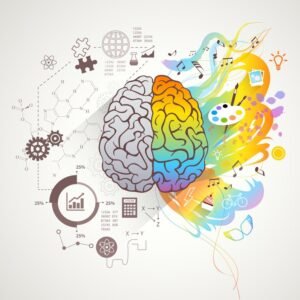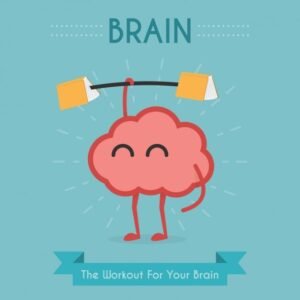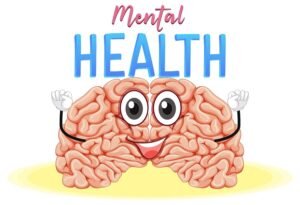A strong memory depends on the health and vitality of your brain. There are many things you can do to preserve and enhance your grey matter as you age, which will improve your memory and boost brain power. Every brain changes with age, and mental function changes along with it. Mental decline is common, and it’s one of the most feared consequences of aging. However, cognitive impairment is not inevitable.

By stimulating new connections between nerve cells and potentially even aiding in the generation of new brain cells, cognitive activities have been shown to promote neurological “plasticity” and accumulate a functional reserve that acts as a buffer against the loss of future neurons.The human brain is remarkably adaptable, changing even as we age. Neuroplasticity is the term for this capacity.
Your brain may create new neural pathways, change connections that already exist, and react and adapt in constantly changing ways when given the appropriate stimulation.This remarkable self-reshaping ability of the brain extends to learning and memory. At any age, you can take advantage of the inherent power of neuroplasticity to boost your brain power, acquire new knowledge more easily, and sharpen your memory.
There are many proven ways which help boost brain’s power. Continue reading to learn how to boost your brain power.
Brain Power: How Mental and Physical Activity Boosts Brain Simultaneously
Any mentally challenging activity ought to support brain development. Exercise can contribute to the development of a healthier brain in addition to increasing our level of fitness. You may improve the connections between brain cells by exercising in any way that you enjoy, whether it’s running, cycling, swimming, or something else entirely.
Like any muscle, your brain is something you have to utilize or lose. Avoid excessive TV watching as it is a passive pastime that doesn’t do anything to engage your brain and affect brain power.
Try mental gymnastics, such word puzzles or math problems and reading. Try your hand at crafts like painting and drawing, which call on both cerebral and manual dexterity.Make an effort to pick up new skills and creative endeavors as these will aid in the development of new brain connections.
As bizarre as it may sound, coloring has been shown to offer cognitive benefits similar to those of meditation. Painting can assist improve your brain ability, so if you enjoy the art, start painting on canvases or walls and turn it into a pastime or occasional activity. If you prefer to cook, experiment with different ingredients and cooking techniques.

If you like being outside, set a goal for yourself to pick up a new sport. The general functioning of your brain can be significantly improved by any time you spend being creative and attempting new things.
Your brain grows via new experiences and becomes more adept at processing and remembering information. Consider taking up a new sport, picking up a language. See what’s on at a local museum or art gallery, give volunteering a shot, or, if you have time, take a day trip, a weekend getaway, or a weeklong vacation to somewhere new.
Numerous studies demonstrate that those who engage in physical activity have a lesser chance of developing Alzheimer’s disease/ Dementia and a decline in their mental function. The brain’s executive functions which include organizing, multitasking, and planning can be enhanced by exercise. Exercise helps to enhance brain power.
Exercise has become known for its ability to elevate one’s mood. Research indicates that individuals who begin exercising have improvements in their emotional state and mental health. Studies show that exercise facilitates the production of dopamine, a hormone linked to happiness.
Exercise directly reduces stress, according to research. It increases endorphin production. Your brain’s production of endorphins, which are feel-good neurotransmitters, may be increased by physical activity.

Exercise causes your brain to receive more blood flow, which has these positive effects. Additionally, it seems to reverse some of the issues by counteracting some of the aging-related natural decline in brain connections and boost brain power.
Try to get in 30 to 60 minutes of activity several times a week. You can engage in any somewhat aerobic exercise that raises your heart rate, such as swimming, tennis, or walking.
Boosting Cognitive Function: The Significance of Healthy Diet in Mental Well-Being
The brain needs energy, just like the body does. Your brain’s health is greatly influenced by what you eat. Think about eating a balanced diet that prioritizes lean protein, whole grains, plant-based foods( fruits and vegetables) and healthy fats like olive oil.
According to studies, those who faithfully adhere to a healthy eating plan have a lower risk of developing Alzheimer’s disease than those who don’t. The specific components of the diet that support brain function the most require additional study. Extra-virgin olive oil and other healthy fats contain omega fatty acids, which are known to be essential for proper cell function, to appear to lower the risk of coronary artery disease, to improve mental clarity, and to reduce the deterioration of cognitive function in older persons.
Studies indicate that omega-3 fatty acids are very good for the health of the brain. One especially abundant source of omega-3 is fish.
Reduce your intake of calories and saturated fat. Studies reveal that eating a lot of saturated fat (found in foods like red meat, whole milk, butter, cheese, cream, and ice cream) raises your risk of dementia and damages your memory and focus.
Consume more fruits and vegetables that are rich in antioxidants to prevent harm to your brain cells. Vibrantly colored fruits and vegetables are especially excellent sources of antioxidant.
Polyphenols, which are strong antioxidants found in green tea, guard against free radicals, which have the potential to harm brain tissue. Green tea has various advantages, including slowing down the aging process of the brain and improving memory and mental alertness when taken regularly.
Studies indicate that omega-3 fatty acids are very good for the health of the brain. One especially abundant source of omega-3 is fish.
Different vitamins and minerals have different ways of increasing cognitive function. Zinc and iodine can support healthy brain function, but vitamin B6, B12, and folate can help avoid fatigue which is a key contributor to procrastination.
By consuming the following foods containing micronutrients and vitamins, you can increase cognitive function.
Meat, fish, beans, veggies, mushrooms, spinach, broccoli, garlic, cereals, nuts, and seeds are good sources of Zinc.
Eggs, strawberries, yoghurt, and turkey are rich in Iodine.
Chicken, turkey, fish, bread, eggs, vegetables, peanuts, milk, and cereals are good sources of vitamin B6.
Dairy products, meat, fish, and grains are good source of vitamin B12
Fish, almonds, seeds, and yolks from eggs contain Omega-3.
Add these items to your diet to reap their health benefits and boost brain power.
Keep your Health in Check
Lead a healthy lifestyle to manage your stress, protect your mental health, and maintain good physical health. Individuals who are sleep deprived, nervous, depressed, or tired typically do badly on mental ability tests , it is undoubtedly preferable to maintain excellent mental health and get enough sleep.
The brain can be severely impacted by emotional issues just as much as by physical ones. One of the brain’s deadliest enemies is stress. Chronic stress harms the hippocampus, the part of the brain responsible for creating new memories and retrieving old ones, and over time kills brain cells. Stress and memory loss have also been linked shown in studies. For this reason, stress management is crucial to maintaining the health of your brain.
Age-related cognitive loss is more likely in those with high blood pressure in their middle years. Make changes to your lifestyle to minimize your pressure. Remain slim, engage in regular exercise, manage your stress, and eat healthily.
One significant risk factor for dementia is diabetes. Maintaining a lean body, eating nutritiously, and exercising frequently can all help prevent diabetes. Keeping your blood sugar in control is vital for mental wellbeing.
An elevated risk of dementia is linked to elevated levels of cholesterol. Reducing your weight, eating right, exercising, and quitting smoking can all help lower your cholesterol.
In order to maintain mental activity, one should maintain hormonal balance since it may be a contributing factor to cognitive decline. Thyroid irregularities can also cause confusion, slow thinking, and forgetfulness. Memory problems are common in menopausal women as their estrogen levels fall.
It is essential to keep your hormones regular to boost brain power hence regular routine checkups are important for early diagnosis and management of any hormonal disturbance.

Keep Addiction at bay
Steer clear of tobacco
Steer clear of tobacco in any form. Cognitive Decline Is caused by tobacco
Smoking cigarettes have been linked to gray matter (GM) volume atrophy and other dementia-related brain abnormalities. According to studies, smokers may see a quicker deterioration in cognitive function than non-smokers.
Avoid alcohol abuse
One of the main risk factors for dementia is excessive drinking. Alcohol can change how the brain functions and looks by interfering with its neuronal pathways. Alcohol impairs the functions of the brain regions in charge of speech, memory, balance, and judgment. Drinking too much can result in adverse effects that are unique to the function of each lobe, such as loss of control, slurred speech and hearing, and impaired vision.
To preserve the functions of your brain and enhance brain power, you must abstain from addiction.
Maintain Healthy Sleep Pattern
One of the main factors affecting memory and brain power is inadequate sleep. Lack of sleep makes it more difficult to focus and respond rapidly, and it prevents your brain from forming or maintaining the neural pathways that allow you to learn and establish new memories.
According to scientists, sleep improves memory and brain health by consolidating memories and removing aberrant proteins from the brain. Getting enough sleep gives your brain the time to consolidate and store your memories effectively. Therefore, maintaining regular sleep pattern is necessary for boosting brain power.
Fasting – A Brain Booster
Fasting may improve cognitive performance and prevent against neurodegenerative diseases.
Numerous investigations have revealed that fasting may have a significant impact on brain power.
Studies have demonstrated that fasting may preserve brain health and promote the growth of new nerve cells to improve cognitive performance.
Fasting may help prevent neurodegenerative illnesses because it may also assist reduce inflammation.
Research indicates that fasting may both prevent and enhance the course of diseases like Parkinson’s and Alzheimer’s. Fasting intermittently is a fantastic way to keep your brain healthy. It does not only delay the aging process but also boosts brain neuroplasticity. This improves brain health and strengthens the brain’s defenses against illness and damage.
Conclusion
To sum up, the quest for increased cognitive function and brain power, involves a complex strategy that incorporates a range of lifestyle components. One can foster optimal cognitive performance and general well-being by engaging in mental and physical workouts, eating nutritious food, getting enough sleep, fasting occasionally, avoiding addictive substances, leading a healthy lifestyle, and managing stress.

